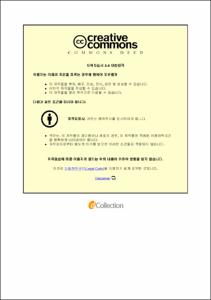수술 전 항암치료를 시행한 유방암환자의 장기예후분석
- Abstract
- Background
Neoadjuvant chemotherapy (NCT) has become the standard of care for operable early-stage breast cancer (BC). Pathologic complete response (pCR) after NCT as well as subtype and age are good prognostic factors for long-term survival. We aimed to identify factors associated achieving pCR and the role of pCR as a prognostic indicator after NCT.
Patients and methods
Total 1,643 patients with BC undergone NCT between 2008 and 2014 were analyzed. Baseline characteristics of patient and tumor, pCR rate and long-term survival outcome were evaluated. Factors associated with achieving pCR, prognostic impact of pCR on overall, each subgroup were analyzed. Disease-free survival (DFS), distant metastasis-free survival (DMFS), and overall survival (OS) were evaluated.
Results
Median age at diagnosis was 45 years (range: 20–80); median follow-up period was 65.5 months (range: 7–147). The overall pCR (ypT0/is ypN0) rate was 17.3%. Tumor size, grade, proliferative index (Ki-67%) and BC subtypes were associated with achieving pCR. Patients with pCR displayed favorable outcome in DFS, DMFS and OS. Among pCR group, age and other known factors were not associated with outcome. On the contrary, among patients with residual disease, young (<40yr) patients exhibited the significantly worst outcome than older non-pCR group. Other risk factors of tumor size, LN involvement, BC subtype were independently associated with outcome in non-pCR group. Among patients exhibiting recurrence after achieving pCR (24/284), more than 70% presented with distant metastasis.
Conclusion
Grade, proliferative index, tumor size and BC subtype were associated with achieving pCR after NCT. Patients who achieved pCR after NCT showed better DFS, DMFS, and OS. Favorable outcome sustained regardless of other known risk factors. pCR achievement was a good prognostic indicator in both young and old groups. Young age, high initial tumor burden, HR-/HER2+, TNBC were associated with worse outcome in patients with residual disease after NCT. Additional adjuvant systemic therapy should be considered for patients with residual disease after NCT.
- Issued Date
- 2020
- Awarded Date
- 2020-08
- Type
- Dissertation
- Alternative Author(s)
- Lee Young Joo
- Affiliation
- 울산대학교
- Department
- 일반대학원 의학과
- Advisor
- 안세현
- Degree
- Master
- Publisher
- 울산대학교 일반대학원 의학과
- Language
- eng
- Rights
- 울산대학교 논문은 저작권에 의해 보호받습니다.
- Appears in Collections:
- Medicine > 1. Theses (Master)
- 파일 목록
-
-
Download
 200000336378.pdf
기타 데이터 / 903.16 kB / Adobe PDF
200000336378.pdf
기타 데이터 / 903.16 kB / Adobe PDF
-
Items in Repository are protected by copyright, with all rights reserved, unless otherwise indicated.